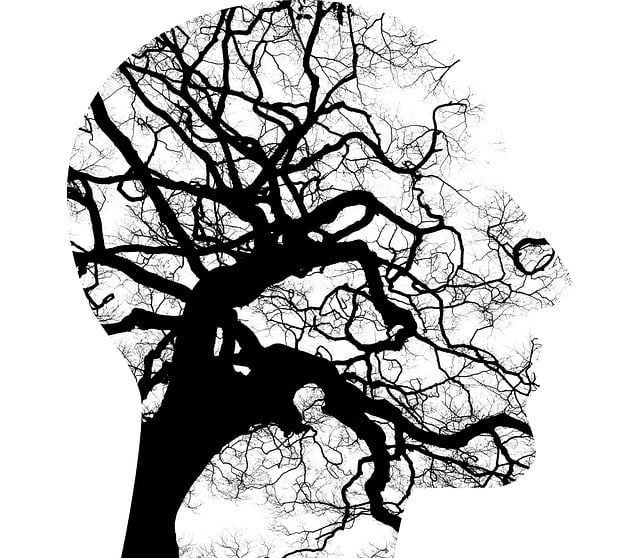Superior Christian Counseling Therapy (SCTC) offers tailored mental wellness programs with diverse services, enhancing public mental health awareness. Their Community Outreach Program Implementation strategy combines quantitative and qualitative methods, including client feedback surveys, to evaluate program effectiveness. Data-driven analysis identifies strengths and areas for improvement, ensuring SCTC's services remain adaptable and effective. Ethical considerations, such as confidentiality, transparency, and respect for autonomy, are integral to their evaluation process, fostering a supportive mental wellness environment without stigma or discrimination.
Mental wellness programs, like those offered by Superior Christian Counseling & Therapy, play a pivotal role in fostering resilience and well-being. Evaluating their effectiveness is crucial for ensuring these programs deliver tangible results. This article explores diverse evaluation methods, from measuring key metrics to integrating client feedback and leveraging data analysis. We also delve into ethical considerations, providing a comprehensive guide to assess and enhance mental wellness initiatives, ultimately promoting positive outcomes.
- Understanding Mental Wellness Programs and Their Purpose
- Evaluating Program Effectiveness: Key Metrics and Methods
- The Role of Client Feedback and Satisfaction Surveys
- Utilizing Data Analysis for Continuous Improvement
- Ethical Considerations in Mental Wellness Program Evaluation
Understanding Mental Wellness Programs and Their Purpose

Mental wellness programs are designed to promote overall well-being and foster healthy coping mechanisms in individuals. These initiatives can take various forms, such as counseling therapy sessions, group support meetings, or structured self-awareness exercises. The primary purpose is to equip people with tools to manage stress, overcome challenges, and lead fulfilling lives. One prominent example of a mental wellness program is Superior Christian Counseling Therapy, which offers specialized services to cater to the unique needs of its community.
These programs aim to create safe spaces where individuals can openly discuss their struggles and learn effective strategies for emotional resilience. By integrating practices like Trauma Support Services and Self-Awareness Exercises, they enhance public awareness campaigns development, encouraging a culture of mental health openness and support. This holistic approach ensures that people from all walks of life have access to resources that contribute to their overall wellness.
Evaluating Program Effectiveness: Key Metrics and Methods

Evaluating the effectiveness of a mental wellness program is crucial for understanding its impact and making informed improvements. At Superior Christian Counseling Therapy, we employ a multi-faceted approach to assess program success, focusing on both quantitative and qualitative metrics. Key performance indicators (KPIs) include tracking client satisfaction scores, treatment completion rates, and changes in symptoms over time through standardized assessments.
Additionally, we integrate feedback from clients, therapists, and community partners to gain deeper insights into the program’s strengths and areas for growth. By combining these methods, our Community Outreach Program Implementation allows us to measure not only the immediate outcomes but also the lasting impact on participants’ emotional regulation and development of inner strength.
The Role of Client Feedback and Satisfaction Surveys

Client feedback and satisfaction surveys play a pivotal role in evaluating mental wellness programs like those offered by Superior Christian Counseling Therapy. These tools provide valuable insights into the effectiveness and impact of various interventions, including resilience building, social skills training, and mental wellness coaching programs development. By gathering direct input from clients, practitioners can assess how well the program aligns with participants’ needs, expectations, and reported improvements.
Satisfaction surveys often include questions about the overall quality of services, the therapeutic environment, and the helpfulness of counselors. This feedback is crucial for refining and improving mental wellness programs. For instance, positive responses to social skills training can highlight successful components that can be replicated or expanded. Conversely, areas identified through client feedback as needing improvement can guide adjustments to better support individuals on their journeys towards enhanced mental wellness.
Utilizing Data Analysis for Continuous Improvement

At Superior Christian Counseling Therapy, we recognize that data analysis is a powerful tool for evaluating and enhancing mental wellness programs. By collecting and examining data related to client outcomes, therapy sessions, and program impact, we can identify areas of success and areas that need improvement. This continuous improvement approach ensures our services remain effective and tailored to the evolving needs of our clients.
Through meticulous data analysis, we gain insights into the effectiveness of our programs, such as tracking reductions in mental illness stigma through self-care routine development and resilience building initiatives. By understanding what works best for our clients, we can make informed decisions to optimize therapy outcomes and foster healthier minds within our community.
Ethical Considerations in Mental Wellness Program Evaluation

When evaluating mental wellness programs, especially within contexts like Superior Christian Counseling Therapy, ethical considerations are paramount. Researchers and practitioners must uphold the highest standards of integrity to ensure participant confidentiality and protect their privacy. This involves obtaining informed consent, ensuring data anonymity, and adhering to strict protocols for storing and sharing sensitive information. Transparency in evaluation methods and clear communication strategies about data use are crucial to building trust with participants.
Additionally, ethical evaluations should consider the potential impact on vulnerable populations. This includes recognizing power dynamics within therapist-client relationships and ensuring that evaluation practices do not inadvertently perpetuate stigma or discrimination. Promoting public awareness campaigns development and initiatives that foster inner strength can be integral parts of these evaluations, aiming to create a supportive environment for mental wellness while respecting individual autonomy and cultural nuances.
In evaluating mental wellness programs, such as those offered by Superior Christian Counseling Therapy, a multi-faceted approach is essential. By combining key metrics, client feedback, data analysis, and ethical considerations, practitioners can ensure these programs effectively support individuals’ mental health journeys. This holistic evaluation method not only measures success but also drives continuous improvement, fostering more impactful and tailored interventions.














